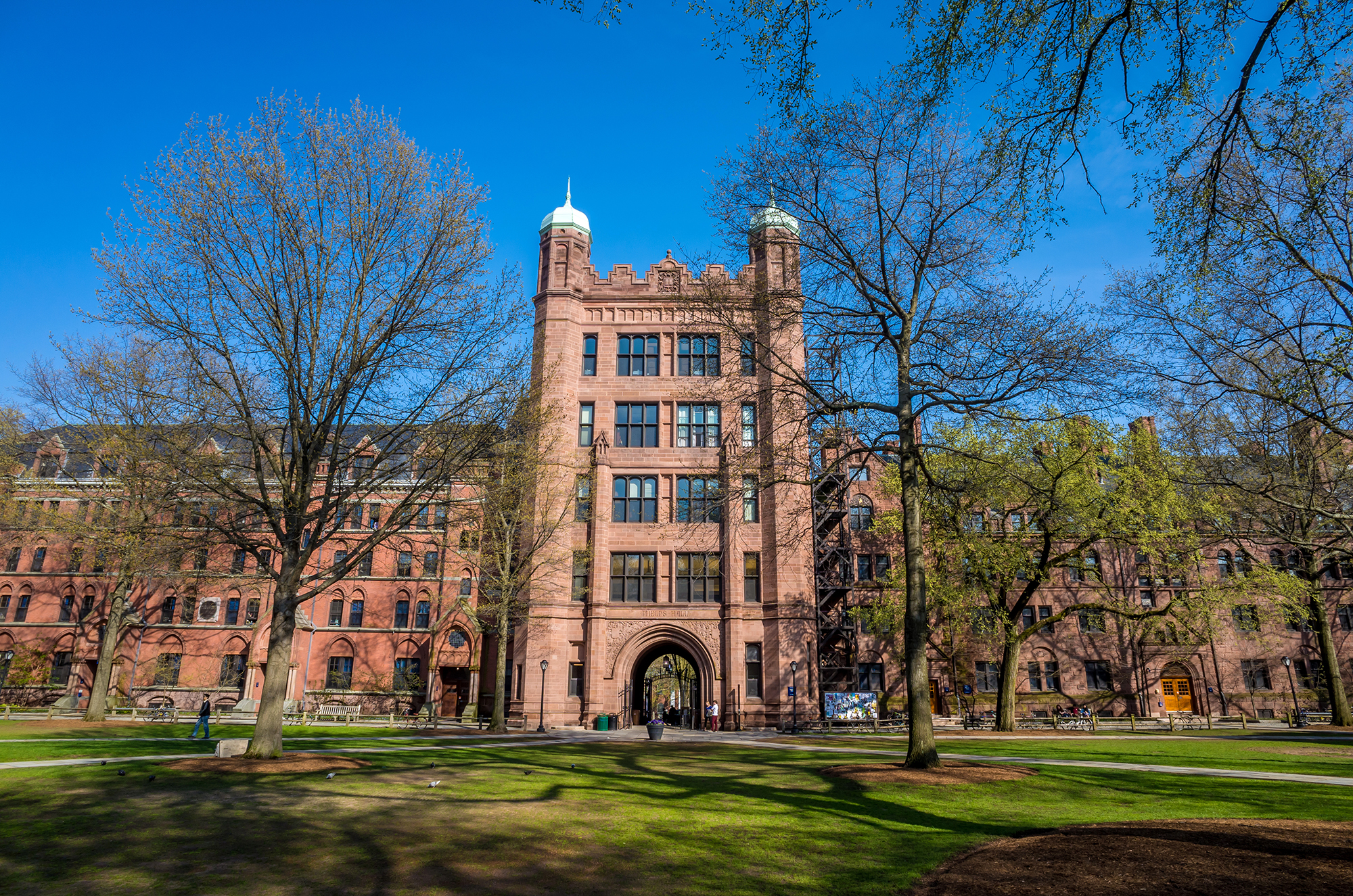Top 5 Paying MBA Careers: Insurance

Insurance is a fast-growing career field. In the next 12 months, 63 percent of insurance companies plan to increase their staff numbers, according to a recent industry trend report.
In fact, by 2020, almost 400,000 insurance jobs are projected to be available. When combining that with the fact that millennials aren’t very interested in working in insurance—only a third demonstrate any interest—it’s a great career field to consider.
There’s a wide range of jobs, across a broad spectrum of career paths, within the insurance industry, and compensation is higher than average. Entry-level professionals can expect to earn more than $50,000 a year, and that number only increases as you gain experience.
In this article, we’re breaking down the highest paid insurance jobs, the companies where you’ll earn the most money, the top MBA programs, and where you should live. Continue reading…
School vs. School: Yale SOM or SC Johnson Cornell?

Deciding which school you’ll attend for your MBA isn’t easy. There are many factors that come into play when choosing the best school for you. You might be most concerned about where and what you want to study, or you could care more about reputation, alumni network, ROI, or even the application process.
Unfortunately, this comparison process can get quite tricky when looking at two very similar schools. To help you out, our School vs. School series does the heavy lifting for you. Take a look at two of the best b-schools Yale SOM and SC Johnson Cornell to see which is best for you.
Yale vs. Cornell: Location
Yale SOM is located in New Haven, Connecticut while SC Johnson Cornell is in Ithaca, New York. In both instances, the schools are located in smaller towns where one-of-a-kind shops, boutiques, and activities rule the day. Neither location is a place where an MBA would look for a job post-graduation, but both are just a little ways outside of New York City. New Haven is under two hours away by car while Ithaca is around four hours away.
As for which town is better:
- Cost of Living: Ithaca is 2 percent less expensive than New Haven.
- Housing: Ithaca housing costs 34.4 percent more.
- Education: New Haven spends 4 percent less per student, and the student to teacher ratio is 17.3 percent higher in New Haven.
- Commute: New Haven residents commute 42 percent more than residents of Ithaca.
- Jobs: Future job growth for New Haven is 19.38 percent compared to Ithaca, which is only 2.24 percent. Both are lower than the entire U.S., which is 30.54 percent.
Overall, Ithaca is a more affordable place to live, but you’re less likely to find a job in Ithaca after graduation.
Yale vs. Cornell: Rankings
Yale SOM and SC Johnson Cornell are both top business schools in the world. Each ranks highly across all publications with Yale SOM just edging out SC Johnson Cornell in most rankings.
Yale and Cornell School Rankings
| Publication | Yale SOM | SC Johnson Cornell |
|---|---|---|
| U.S. News & World Report | 11 | 15 |
| The Economist (Global) | 14 | 17 |
| Financial Times (Global) | 11 | 27 |
| Forbes | 13 | 10 |
| Bloomberg Businessweek | 12 | 11 |
Yale vs. Cornell MBA: The Cost
Each business school costs about the same on a per-year basis. Tuition is not even $3,000 more at Yale, and when you add on the increased cost-of-living, Yale is just $5,000 more per year than Cornell. Where Cornell saves the most is in housing and food, which is only $16,800 a year compared to Yale’s distressing $22,214.

When it comes to living on campus, Yale students are emptying their wallets more, paying an average annual rate of more than $22,000.
However, when it comes to funding, Yale SOM wins. One in every two Yale SOM MBA students earns a merit scholarship. Even better 29 Yale MBA students end up with full-tuition scholarships. On the other hand, only 30 percent of Cornell SC Johnson students receive some scholarship assistance. However, there are many full-tuition scholarships available including 25 Park Leadership Fellowships.
Yale and Cornell School Costs
| Cost | Yale SOM | SC Johnson Cornell |
|---|---|---|
| Tuition | $72,350 | $69,440 |
| Full Cost | $100,274 | $95,340 |
Yale vs. Cornell: Post-Graduation Employment
When it comes to post-graduation, both Yale SOM and Cornell SC Johnson MBA students can expect many opportunities for success. About 94 percent of Cornell MBA students and 91.9 percent of Yale SOM graduates have a full-time job offer three months after graduation.
Those graduates enter a range of industries with the top industries being consulting, finance, and technology. Consulting was the top industry at Yale SOM whereas Cornell students preferred finance. In both cases, most students chose to stay in the Northeast U.S. with 55 percent of Cornell graduates staying in the area and 48 percent of Yale graduates.
Yale vs. Cornell Employment
| Industry | Yale SOM | SC Johnson Cornell |
|---|---|---|
| Consulting | 34.9% | 22% |
| Finance | 23.1% | 29% |
| Tech | 14.9% | 18% |
As for post-graduation salary, both schools are on par with each other. Graduates can expect to earn slightly over $125,000 after graduation with a bonus of around $30,000.
Yale vs. Cornell Salary
| Salary | Yale SOM | SC Johnson Cornell |
|---|---|---|
| MBA Graduate Median Base Salary (2018) | $127,100 | $126,353 |
| Median Signing Bonus | $30,000 | $33,503 |
Inside Yale SOM
Located in New Haven, Connecticut, Yale SOM is one of the top business school’s in the country. Its proximity to New York City means that MBA students have access to many highly coveted networking, partnership, and placement opportunities in one of the business hubs of the world. Its programs are ranked in the top 15 in the world across all international and U.S.-based MBA rankings, regularly placing 11th overall.
Program Offerings
- Full-Time MBA: The two-year, full-time MBA program at Yale SOM requires students to earn 72 credits—39 of which are electives.
- EMBA: The 22-month Executive MBA program at Yale offers classes on alternating weekends (Friday and Saturday) and is ranked first in the world according to The Economist.
There are also multiple joint degree opportunities. MBA students can pursue a joint degree with Yale Law School, Yale School of Medicine, the Yale School of Forestry & Environmental Studies, and the Yale School of Architecture.
Why Yale SOM?
- Yale SOM emphasizes “raw” online cases. These cases attempt to capture the complexity of real decision-making.
- MBA students can participate in 50-plus student clubs on a variety of topics from leadership to social venture.
- Yale MBA students are required to complete an international component, including a 10-day trip to one or more countries. The school is also a part of an exchange program with the London School of Economics, HEC Paris, IESE, National University of Singapore, and Tsinghua University School of Economics.
Inside SC Johnson Cornell
Located in Ithaca, New York, the SC Johnson College of Business at Cornell University is one of the best business schools in the world. It regularly ranks in the top 25 schools globally and the top 15 schools nationally. Its proximity to NYC means that students have many opportunities for networking, internships, and more.
Program Offerings
- Two-Year MBA: The two-year, full-time MBA program at Cornell includes more than 4,000 elective courses from any of Cornell’s top-ranked schools.
- One-Year MBA: The One-Year MBA is designed for students who have already earned a certification or are enrolled in a dual degree program.
- Tech MBA: The Tech MBA program is a 12-month program in the heart of New York City on Roosevelt Island. The curriculum is split into module and studios.
- EMBA NY: The Executive MBA program is 22 months in length and requires students to complete 60 credits every other weekend on Saturday and Sunday.
There are also multiple dual degree programs including a JD/MBA and an MS/MBA. Other dual degree opportunities include a degree in Industrial and Labor Relations, Real Estate, and Health Administration.
Why SC Johnson Cornell?
- Cornell SC Johnson offers eight immersion opportunities. These courses and their projects/cases are based on a specific career path and industry.
- Students have access to more than 120 electives across a range of concentrations. There are also more than 80 professional, regional, and diversity clubs students can join.
- Global learning is not a requirement. However, there are a large number of international business learning opportunities, including international study trips and an international exchange program.
For additional insight, be sure to check out the news at both Yale and Cornell.
5 Questions with Sacred Heart’s Exec. Director of Graduate Admissions Pam Pillo

In the newest installment of the MetromBA “5 Questions” series, we spoke with Jack Welch College of Business Executive Director of Graduate Admissions Pam Pillo about the future of the Connecticut business school, and much more.
What are you most excited about regarding the future of the Sacred Heart MBA Program?
“Next fall, Sacred Heart University’s Jack Welch College of Business will move to the new West Campus, formerly General Electric’s global headquarters. The facility will include more classrooms and facilities for faculty and students, including a finance lab, artificial intelligence and innovation facilities. The incubator space will allow students, in conjunction with investors and area businesses to develop their creative ideas for new products and programs. The Welch College of Business is vested in the success of our students and continued success of the region. The new campus will serve as an active pipeline for skilled workers to meet the needs of today’s rapidly evolving economy.”
What is a unique selling point of your school that some people may not be aware of?
“The Welch College of Business offers a personalized experience. Full-time faculty and staff are dedicated to meeting the needs of students. Classes operate on a 15:1 student faculty ratio. The Welch MBA also collaborates with area corporations including Subway, People’s Bank, Edgewell Personal Care, and Diageo to name a few. Students apply business concepts through the development of a business plan to promote a product or service both domestically and internationally.”
What parts of the MBA program should more students know about before starting their graduate school career?
“The Welch MBA features a team-based approach through the Integrated Core portion of the curriculum. A key competency developed in the Welch MBA is accountability for decisions and actions of team and self, putting team goals ahead of individual goals, with the focus on contribution to the organization.”

Jack Welch MBAs collaborate with local companies, such as Subway, People’s Bank, and Edgewell Personal Care.
What kind of students would you say your business school is most interested in?
“The Welch MBA encourages students from various academic and professional backgrounds.”
What was the last book you loved?
“Grit by Angela Duckworth”
You can check out Duckworth’s TedTalk on her work below.
Click here for more information on the Sacred Heart Jack Welch College of Business graduate admissions.
Top MBA Recruiters: IBM

Finding a job after graduating with your MBA isn’t typically the issue. There are hundreds of industries and companies that would be happy to hire a freshly minted MBA graduate. The trouble is choosing the right company and job for you. If IBM hasn’t been on your list of top tech companies, maybe it should be.
About IBM
Headquartered in Armonk, New York—north of NYC and bordering Connecticut—IBM (International Business Machines Corporation) is a multinational technology company that operates in over 170 countries worldwide. It got its start in 1911, and since that time has manufactured leading-edge computer hardware, middleware, and software. The company also provides hosting and consulting services across the technology industry on topics ranging from mainframe computers to nanotechnology.
IBM is dedicated to a constant state of innovation, which is evidenced by its performance. In 2017, the company earned $79.1 billion in revenue and demonstrated that it’s still a cutting-edge technology company by expanding on many of its services including the IBM Cloud—who’s revenue accounted for 21 percent of total revenue. Other top products from the company include:
- z14: The world’s most powerful transaction system that encrypts data at scale, all the time.
- POWER9: POWER9 systems and software cut training times by 4x and boost AI accuracy.
- IBM Q Experience: The world’s first (and only) prototype 50-qubit system, which leads in quantum computing.
And IBM is always looking for new ways to be competitive. Last year, the company spent $5.6 billion on research and development. And in 2016, IBM filed 8,000 patents (the most of any company). It’s a company that is moving forward quickly, which can make it an exciting prospect for many MBA students. So, why should you work for IBM?
Why IBM?
Nicknamed Big Blue, the appeal of working for a company like IBM is fairly obvious. It’s one of the world’s largest employers with over 380,000 employees as of 2016, and those employees are top notch. Throughout the company’s history, employees have been awarded:
- Five Nobel Prizes
- Six Turing Awards
- Ten National Medals of Technology
- Five National Medals of Science
And some former IBM employees include Apple CEO Tim Cook, Microsoft Chairman John W. Thompson, SAP Co-Founder Hasso Plattner, and former Lenovo CEO Steve Ward.
In addition, if you choose to work for IBM, you have the opportunity to work almost anywhere in the world. The company has several main campuses across the globe including:
- Austin, Texas
- Raleigh-Durham, North Carolina
- Rochester, Minnesota
- New York City, New York
- Silicon Valley, California
- Rome, Italy
- Winchester, UK
- Johannesburg, South Africa
- Tokyo, Japan
And that’s just to name a few of IBM’s premier locations. And no matter where you land a job, you’ll be called an “IBMer” and receive a myriad of benefits including group life insurance, survivor benefits, paid vacation, and more.
In 2017, IBM was also recognized by Mogul as one of the Top 100 Innovators in Diversity & Inclusion as well as one of the Top 100 Companies for Millennial Women. And in 2015, IBM was named to Working Mother’s 100 Best Companies list for the 30th consecutive year.
Landing a Job at IBM
So, how do you land a job at IBM as a new MBA graduate? There are a few options. The first is the IBM General Management Leadership Development Program (GMLDP), which is the premier leadership development program for top MBA graduates. If you’re accepted, you’re hired into IBM on an accelerated path to leadership with opportunities across many of IBM’s areas including cloud, Watson, digital, offering management, and consulting.
And speaking of consulting, MBA graduates also have the opportunity to work as consultants in IBM Global Business Services. Within this area, MBA consultants are given a chance to combine sophisticated analytics with market-leading global solutions to provide deep industry insight and expertise alongside an actionable plan.
At any given time, there are over 5,000 job openings available in every industry and area from project management to marketing. Some available jobs for MBA graduates include:
- Strategy Consultant
- Projects Manager
- Account Executive
- Offering Manager
- Associate Partner for Tech/Data Strategy
- Digital Business Consultant
- Business Analyst
Meet an Employee
According to Nish Parekh, who leads IBM’s client and partner programming teaching businesses how to use IBM’s Watson technology, she’s living her dream. With Watson, she gets to work on the leading edge of AI technology and touch a variety of industries, which is exciting in and of itself.
“They bring in a lot of people from different parts of IBM, as well as some folks from outside IBM. Seeing the mix and all these people work together is fun. I get to learn from them,” Parekh told Fast Company. “Also, one of the greatest things about my job is the ability to stay on top of the latest and greatest technology. AI is up and coming; it’s exciting to be a part of that moment.”
